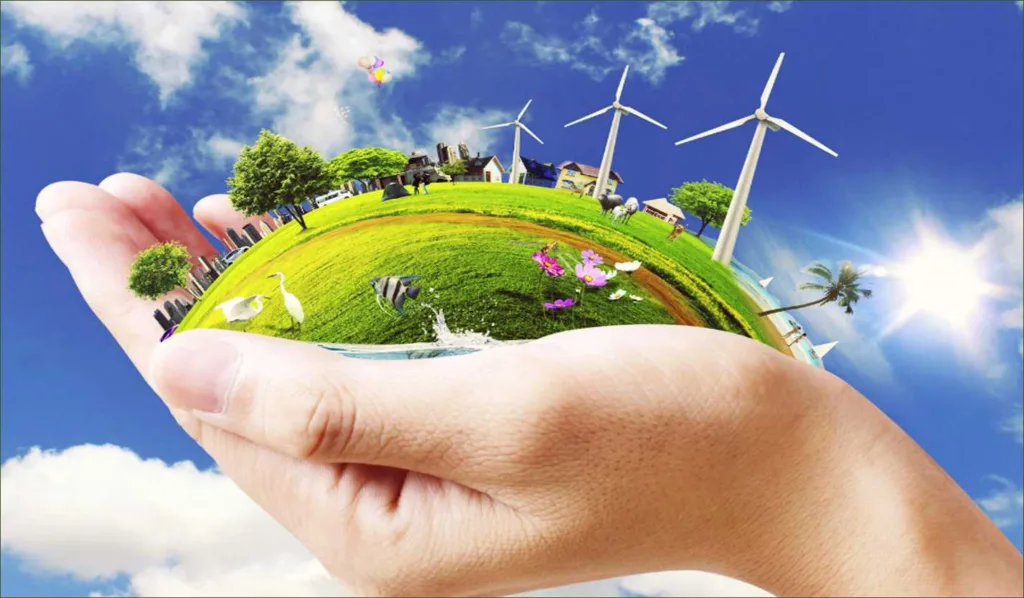In the quest for a plastic-free lifestyle, many individuals have embarked on transformative journeys triggered by unexpected events. For Sarah Paiji Yoo, the catalyst was the birth of her child and the realization that even seemingly innocent choices, like selecting baby formula, had far-reaching consequences. This revelation propelled her into a mission to combat plastic pollution, ultimately leading to the creation of Blueland in 2019.
Unveiling the Microplastic Menace
Sarah Paiji Yoo’s journey began with the seemingly simple task of choosing the right water to mix with her son’s formula. Little did she know that this decision would unravel the pervasive presence of microplastics in everyday life. Shockingly, tap water and bottled water alike in the United States contained hundreds of pieces of microplastics per liter. This realization became a turning point, prompting Yoo to question the sources and impact of these microscopic plastic shards.
Tracing the Plastic Trail
As Yoo delved deeper into the issue, she discovered that plastic had infiltrated every aspect of her life. From her child’s vitamins to her toothpaste and even the ketchup in her fridge, plastic was omnipresent. The ubiquity of this synthetic material sparked a realization – plastic was not just a convenience; it was an insidious force with far-reaching consequences for both human health and the environment.
In her pursuit of knowledge, Yoo began connecting the dots, tracing those microplastics tiny shards of plastic that form from the breakdown of larger plastic items back to their source. Or rather, their many, many sources. Yoo was soon seeing plastic throughout her life: It held her child’s vitamins, her toothpaste, the ketchup she kept in the fridge. “It’s really everything,” she said.
Microplastics: A Global Epidemic
In the subsequent years, a flood of alarming data inundated the public sphere, highlighting the pervasive impact of plastic pollution. Scientists found microplastics in the most unexpected places – deep ocean trenches and the summits of remote mountains. In 2019, researchers in Australia estimated that individuals ingest a credit card’s worth of microplastics every week, with the health implications yet unknown. This revelation underscored the urgency of addressing plastic pollution at its roots.
Plastic’s Toll on Marine Life and Communities
Simultaneously, research shed light on the dire consequences of plastic pollution on marine life. The ocean, once considered vast and resilient, now bore the brunt of human plastic consumption. Moreover, the production of plastic contributed significantly to the carbon footprint, exacerbating climate change. The disproportionate impact on impoverished communities, particularly those of color, heightened the urgency of finding sustainable solutions.
Yoo was determined to do something about it. A self-described serial entrepreneur, she ended a self-imposed break from starting new businesses to co-found Blueland in 2019. The company’s mission is to eliminate unnecessary plastics from familiar cleaning and personal care products like dish soap, toilet bowl cleaner, and body wash all of which it sells in concentrated tablet form, shipped directly to customers in recyclable paper packaging.
A Serial Entrepreneur’s Resolve
Armed with a determination to make a difference, Sarah Paiji Yoo, a self-described serial entrepreneur, decided to end her hiatus from launching new ventures. In 2019, she co-founded Blueland, a company with a singular mission: to eliminate unnecessary plastics from commonplace cleaning and personal care products.Concentrated Tablet Innovation
Blueland’s revolutionary approach involves transforming traditional products like dish soap, toilet bowl cleaner, and body wash into concentrated tablet forms. These tablets are not only effective but also environmentally friendly. Shipped directly to customers in recyclable paper packaging, Blueland is not just offering a product; it’s offering a sustainable lifestyle.
In a market saturated with conventional cleaning products packaged in single-use plastic, Blueland stands out as a beacon of sustainability. The concentrated tablets not only reduce plastic waste but also minimize the carbon footprint associated with transportation and production.
Blueland’s commitment to innovation and sustainability doesn’t stop at its product offerings. The company is actively engaged in raising awareness about plastic pollution and advocating for systemic changes. By sharing educational content on social media, collaborating with environmental organizations, and promoting a plastic-free lifestyle, Blueland is inspiring individuals to make conscious choices for the well-being of the planet.
Conclusion:
As we navigate the complexities of modern living, Blueland stands as a beacon of hope in the fight against plastic pollution. Sarah Paiji Yoo’s journey from a concerned mother to a crusader against unnecessary plastics exemplifies the power of individual choices. Blueland’s commitment to innovation and sustainability paves the way for a future where clean living is synonymous with a cleaner, healthier planet.
Blueland’s impact extends beyond the realm of consumer products; it’s a catalyst for a broader shift towards eco-conscious living. By challenging the status quo and providing viable alternatives, Blueland empowers consumers to be agents of change in the global effort to reduce plastic waste.
As we look towards the future, the success of Blueland serves as a testament to the growing demand for sustainable and eco-friendly solutions. It signals a shift in consumer behavior, indicating that people are increasingly valuing products that align with their environmental values. Blueland’s story is not just about a company; it’s a narrative of collective responsibility and the potential for positive change.

